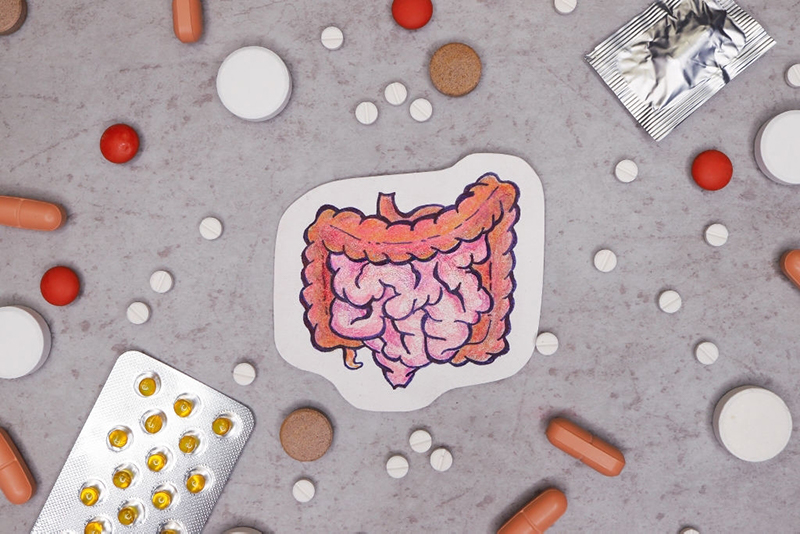Objectives: Breastfeeding is recognized as the best feeding method in infancy and an important source of infant gut microbiota. Infancy is a critical period for the colonization of intestinal flora. The early colonization pattern of intestinal flora can affect the physiological development of the intestine and the maturation of the immune system, and affect the risk of long-term obesity and allergic diseases. In this study, by analyzing the relationship between changes in the intestinal flora of infants with different feeding methods and the incidence of overweight, obesity and neuropsychological development, we tried to clarify the early probiotic intervention from the perspective of intestinal microecology by modifying the intestinal flora and observing its The effect on long-term overweight and obesity incidence and neuropsychological development provides a basis for probiotics as part of a dietary strategy to improve the ability of the microbiota to convert nutrients into active compounds, thereby promoting long-term health. probioticseverything.com
top 5 best probiotics
top 5 best probiotics
1. The colonization of intestinal flora of neonates after birth is a complex process. Since the intestines are filled with a lot of oxygen at birth, it is manifested in the preferential colonization of Enterococcus and Escherichia coli as the representative aerobic bacteria in infant feces, which consume oxygen and change In the intestinal microecological habitat, the late colonization of anaerobic bacteria represented by Bifidobacterium and Lactobacillus appeared, and this ecological pattern dominated by anaerobic bacteria became stable in the 12th month after birth. probioticseverything.com
1. The colonization of intestinal flora of neonates after birth is a complex process. Since the intestines are filled with a lot of oxygen at birth, it is manifested in the preferential colonization of Enterococcus and Escherichia coli as the representative aerobic bacteria in infant feces, which consume oxygen and change In the intestinal microecological habitat, the late colonization of anaerobic bacteria represented by Bifidobacterium and Lactobacillus appeared, and this ecological pattern dominated by anaerobic bacteria became stable in the 12th month after birth. probioticseverything.com
1. The colonization of intestinal flora of neonates after birth is a complex process. Since the intestines are filled with a lot of oxygen at birth, it is manifested in the preferential colonization of Enterococcus and Escherichia coli as the representative aerobic bacteria in infant feces, which consume oxygen and change In the intestinal microecological habitat, the late colonization of anaerobic bacteria represented by Bifidobacterium and Lactobacillus appeared, and this ecological pattern dominated by anaerobic bacteria became stable in the 12th month after birth. probioticseverything.com
2. Different feeding methods are one of the main factors affecting the colonization and change of intestinal flora. Bifidobacteria and Lactobacillus colonize the intestines of breast-fed infants earlier, and the time to dominance is earlier than that of artificial-fed infants.
Stable to the bacterial structure dominated by bifidobacteria. The early addition of probiotics makes the intestinal flora structure of infants close to that of breastfed infants, and also forms an ecological pattern with bifidobacteria as the dominant bacteria. probioticseverything.com
top 5 best probiotics
3. The physical growth and neuropsychological development indexes of breastfed infants are better than those of artificially fed infants. Infants with probiotics intervention in the early postnatal period, their physical growth and development and neuropsychological development indicators are close to those of breastfed infants, indicating that early establishment and maintenance of a stable intestinal microecological balance can promote long-term physical and mental health of infants. probioticseverything.com
top 5 best probiotics
4. Long-term follow-up studies have found that the incidence of overweight and obesity in ordinary formula-fed infants is higher than that in breast-fed infants and probiotic-supplemented formula-fed infants. association. probioticseverything.com
top 5 best probiotics
5. The number of bifidobacteria in feces of overweight and obese children was lower than that of normal weight children, and the ratio of bifidobacteria/Escherichia coli in feces of obese children was lower than that of normal weight children, indicating that overweight and obese children had changes in the structure of intestinal flora. probioticseverything.com
top 5 best probiotics
6. Early intervention of probiotics can help infants to establish a stable ecological pattern in the intestinal tract as early as possible, which is of great significance for maintaining the long-term health of infants and reducing the risk of overweight and obesity. probioticseverything.com
top 5 best probiotics







